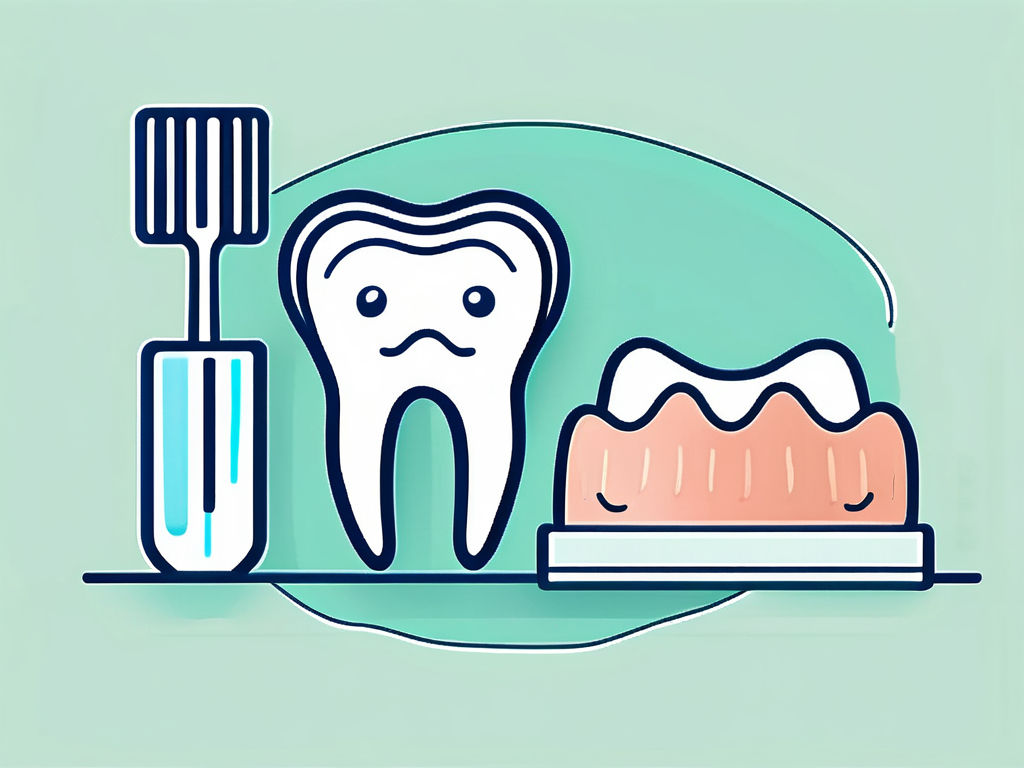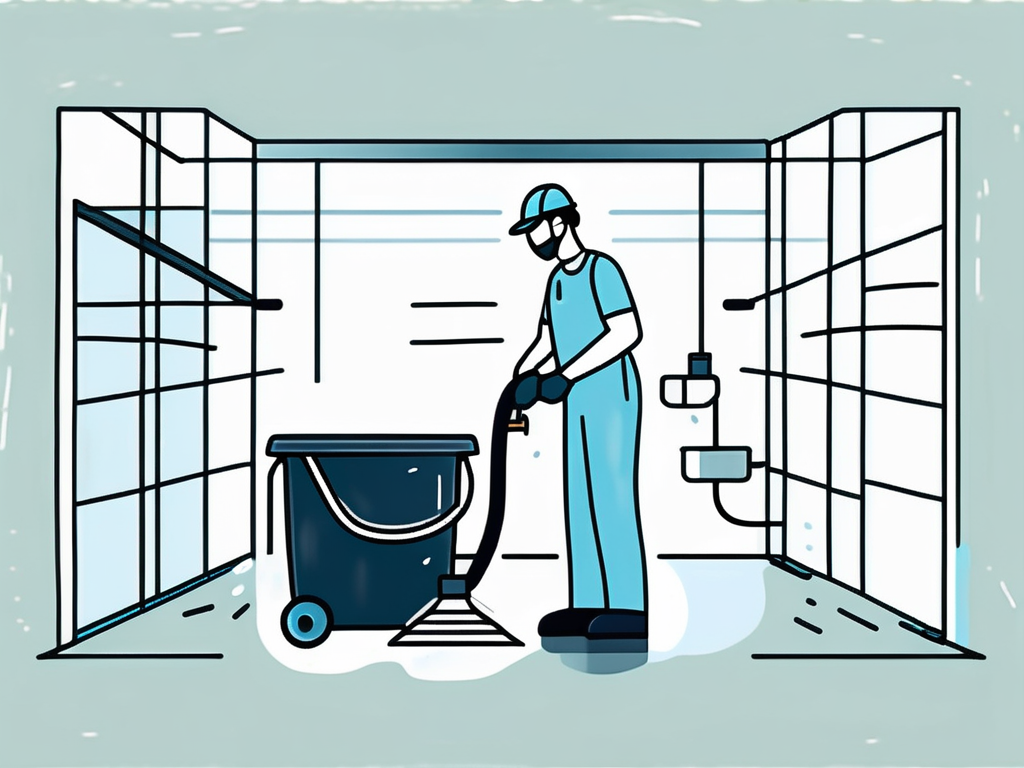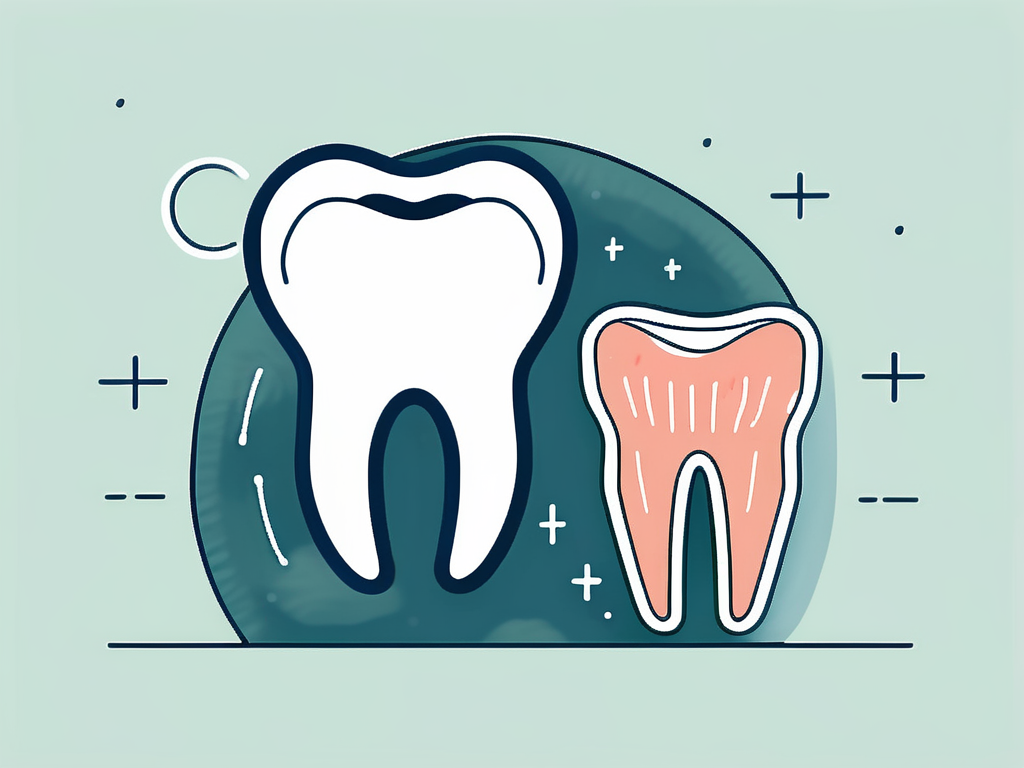Mouth guards play a crucial role in maintaining good oral hygiene and gum health. These oral appliances are commonly used to address different dental issues and promote overall oral wellbeing. In this article, we will explore the significance of mouth guards and their impact on oral hygiene and gum health.
Understanding the Role of Mouth Guards
Mouth guards are custom-made oral devices that are worn during sleep. They are typically made from a durable plastic material and are designed to fit comfortably over the teeth. Mouth guards act as a protective barrier, preventing contact between the upper and lower teeth. They help to alleviate various dental problems and support optimal oral health.

Furthermore, mouth guards are not only beneficial for preventing dental issues but also for promoting better sleep quality. By reducing the impact of teeth grinding and clenching, mouth guards can help individuals achieve a more restful night's sleep. This improved sleep quality can have a positive impact on overall health and well-being.
What are Mouth Guards?
Mouth guards, also known as occlusal splints or dental splints, are oral appliances that are specifically crafted to address certain dental conditions. They are intended to be worn while sleeping and are customized by dental professionals to provide a secure and comfortable fit.
Moreover, the design of mouth guards can vary based on the individual's specific needs. Some mouth guards cover all teeth, while others only cover a specific section of the mouth. This customization ensures that the mouth guard effectively addresses the patient's unique dental concerns and provides maximum protection.
Why are Mouth Guards Used?
Mouth guards are used for multiple reasons, including teeth grinding or bruxism, temporomandibular joint disorder (TMJ), and to protect dental restorations. Bruxism, the unconscious clenching and grinding of teeth during sleep, is a common condition that affects many individuals. If left untreated, bruxism can lead to tooth damage, jaw pain, and other oral health issues. Mouth guards serve as a cushion, absorbing the force produced by grinding, and provide relief from these symptoms.
Additionally, mouth guards can help in reducing muscle tension in the jaw and face, which is beneficial for individuals suffering from TMJ disorder. By providing a stable bite position and preventing excessive strain on the jaw joints, mouth guards can alleviate pain and discomfort associated with TMJ.
The Connection between Mouth Guards and Oral Hygiene
Proper oral hygiene is essential for maintaining healthy teeth and gums. Mouth guards can positively influence oral hygiene practices in several ways, promoting a cleaner and healthier mouth.
When it comes to oral health, the benefits of mouth guards extend beyond just protecting teeth from grinding and clenching. These dental devices also play a crucial role in preventing enamel erosion, which can occur due to the excessive forces exerted during nighttime teeth grinding. By cushioning the impact and distributing the pressure evenly, mouth guards help preserve the integrity of the enamel, the outer layer of the teeth that protects against decay.
Mouth Guards and Plaque Control
Mouth guards create a protective barrier between the upper and lower teeth, preventing the excessive wear that can occur from grinding or clenching. By reducing the impact on tooth surfaces, mouth guards help to minimize the formation of plaque. Plaque is a sticky film of bacteria that accumulates on teeth and can lead to various dental problems, such as cavities and gum disease.
Moreover, the use of mouth guards can aid in maintaining optimal saliva flow during sleep. Saliva plays a crucial role in neutralizing acids in the mouth and washing away food particles that can contribute to plaque formation. By ensuring proper saliva flow and distribution, mouth guards help create a more favorable oral environment that discourages the growth of harmful bacteria.
Mouth Guards and Bad Breath
Bad breath, or halitosis, can be caused by factors such as poor oral hygiene, dry mouth, or certain medical conditions. Mouth guards can indirectly contribute to fresher breath by promoting better oral hygiene practices. When wearing a mouth guard, individuals are encouraged to brush and floss their teeth before bed. This routine helps to remove bacteria and food particles, reducing the potential for bad breath.
Additionally, mouth guards can aid in preventing dry mouth, a common condition that can contribute to halitosis. By keeping the mouth slightly open and allowing for proper airflow, mouth guards help reduce the likelihood of waking up with a dry, stale mouth in the morning. Adequate saliva production, facilitated by the use of mouth guards, can also help combat bad breath by naturally cleansing the oral cavity and maintaining moisture levels.
Impact of Mouth Guards on Gum Health
Gum health is crucial for maintaining strong teeth and overall oral wellbeing. Mouth guards can play a significant role in supporting healthy gums.
Ensuring the health of your gums is essential for a healthy mouth. Healthy gums are the foundation of a strong smile, providing support and protection for your teeth. Mouth guards are a valuable tool in maintaining gum health, as they can help alleviate various issues that may arise during sleep, such as teeth grinding and clenching.
Mouth Guards and Gum Disease Prevention
Gum disease, also known as periodontal disease, is a bacterial infection that affects the gums and surrounding tissues. Mouth guards, by protecting teeth from grinding and clenching, help to alleviate the stress and pressure on gums. This can contribute to a reduced risk of gum disease development, as excessive force on the gum tissue can lead to gum recession and inflammation.
Preventing gum disease is crucial for overall oral health. Untreated gum disease can lead to serious complications, including tooth loss and systemic health issues. By using mouth guards to reduce the strain on your gums, you are taking proactive steps to protect your oral health and prevent the onset of gum disease.
Mouth Guards and Gum Irritation
Wearing mouth guards can also help prevent gum irritation that may arise from bruxism or TMJ disorder. By providing a cushioning effect, mouth guards distribute the forces generated during grinding, reducing the impact on the gums. This can help alleviate discomfort and minimize gum irritation.
Gum irritation can be a common side effect of teeth grinding and clenching. The constant pressure and friction on the gums can lead to soreness, sensitivity, and even tissue damage. Mouth guards act as a barrier between your teeth, ensuring that the force is distributed evenly and reducing the likelihood of gum irritation. By wearing mouth guards consistently, you can protect your gums from unnecessary strain and maintain their health and integrity.
Proper Care and Maintenance of Mouth Guards
Caring for mouth guards is crucial to ensure their effectiveness and longevity. By following a proper care routine, individuals can maximize the benefits of their mouth guards.

Cleaning Your Mouth Guard
Regular cleaning is essential to maintain a hygienic mouth guard. After each use, rinse the mouth guard with cool water to remove saliva and debris. Brush the mouth guard using a soft toothbrush and mild soap or non-abrasive toothpaste. Avoid using hot water or abrasive cleaners, as they may damage the mouth guard. Additionally, it is recommended to soak the mouth guard in a denture cleaner or a specialized cleaning solution to further eliminate bacteria and stains.
When to Replace Your Mouth Guard
Over time, mouth guards may wear down or become less effective. It is important to monitor the condition of the mouth guard regularly. If there are visible signs of damage, such as cracks or rough surfaces, it may be time to replace the mouth guard.
Common Misconceptions about Mouth Guards
Despite their many benefits, there are some misconceptions surrounding mouth guards. Let's debunk some of these myths and provide accurate information.

Debunking Mouth Guard Myths
- Myth: Mouth guards cause more grinding. Fact: Mouth guards actually protect teeth from excessive wear caused by grinding, reducing the negative impact.
- Myth: Mouth guards are uncomfortable to wear. Fact: Custom-made mouth guards are designed to fit comfortably and securely over the teeth, ensuring a better night's sleep.
- Myth: Mouth guards can cure bruxism. Fact: While mouth guards alleviate the symptoms of bruxism, they do not cure the underlying causes. Identifying and addressing the root cause is crucial for long-term management.
Facts about Mouth Guards and Oral Health
- Mouth guards are designed to help protect teeth from damage, alleviate discomfort, and maintain proper oral alignment.
- Using mouth guards can contribute to better oral hygiene practices and reduce the risk of dental problems, such as cavities and gum disease.
- Proper care and maintenance of mouth guards are essential for their effectiveness and longevity.












